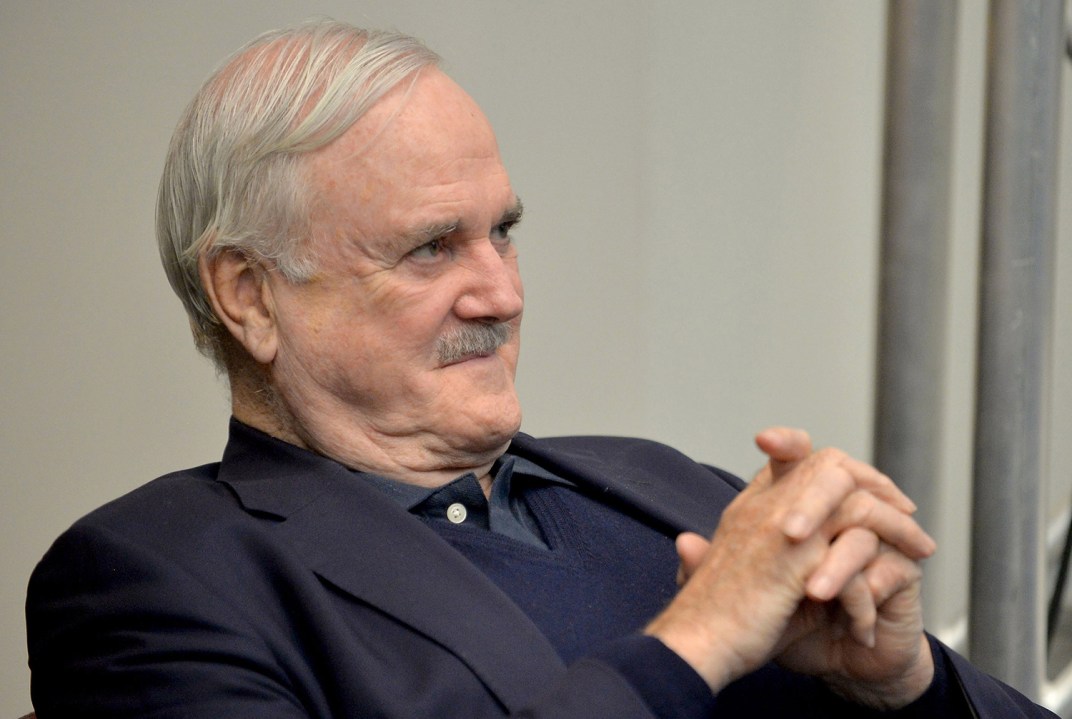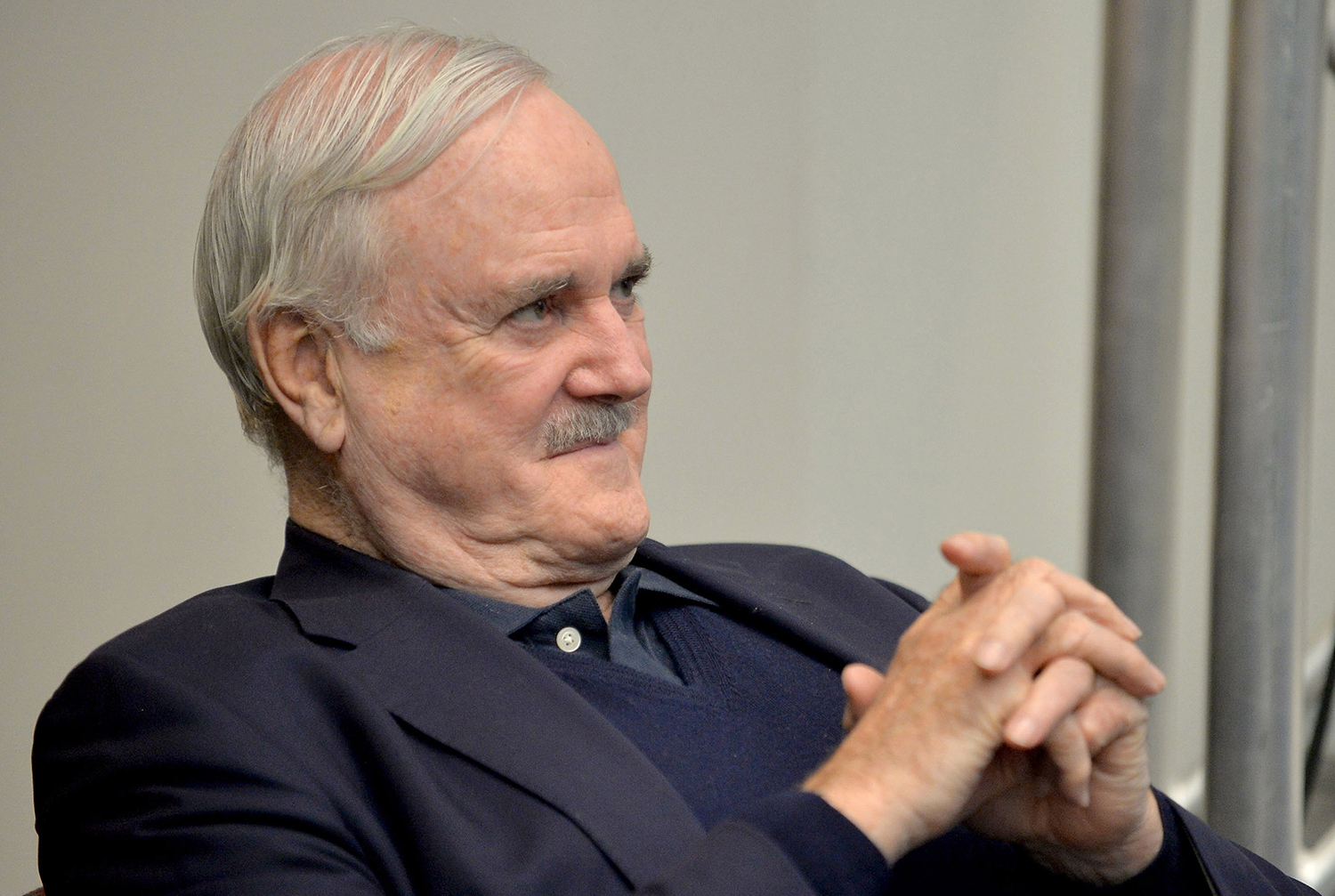I’m listening to John Cleese talking to Justin Welby in the new series of The Archbishop Interviews when the thought occurs to me that he might unwittingly be comparing himself to Christ. The comedian has just been discussing the failure of the literal-minded to comprehend sarcasm and irony, and the inanity of tabloid headlines, when he circles back to the topic of religion. Though not a believer himself, he is troubled by literal-mindedness in the reading of scripture. ‘Christ taught in parables,’ he notes, ‘and parables are not supposed to be taken literally.’
One can almost feel another headline coming on. Cleese has been waging a war against the wokerati for years. In 2020, he opposed UKTV’s decision to stop streaming an episode of Fawlty Towers on the grounds that it contains racism. In 2021 he pulled out of an event at the Cambridge Union after students banned the art historian Andrew Graham-Dixon from returning to the chamber for doing an ill-advised impression of Hitler. These days it seems that Cleese barely has to open his mouth to inspire a pedants’ revolt. Headline or no headline, the octogenarian would surely have fair grounds for considering himself a victim of persecution – and for the avoidance of doubt, I don’t mean that literally.
The agility of Welby’s intellect and his speed of response are consistently impressive
Welby knows that Cleese has been caught out on controversial terrain, and to his credit, he does not recoil. The way we understand the Bible changes, Welby reflects, and while some quarters may still find it controversial to say so, the first part of the book of Genesis is no longer taken as science. Cleese’s point about the potentially destructive consequences of taking things too literally proves to be well borne out in the worlds of comedy and religion alike. I dare say that most listeners, myself included, will support Cleese’s case. It’s a sad state of affairs when a deliberate display of bigotry, as often found in Fawlty Towers, is idiotically interpreted as an endorsement.
The agility of Welby’s intellect and his speed of response are consistently impressive across the series, which features some particularly deep interviews with Nick Cave and Afghan politician Zarifa Ghafari. Welby does well to remind us that the backlash against religious controversy is nothing new. Cleese and fellow Python Michael Palin had to defend Life of Brian against accusations of blasphemy in 1979.
Echoing Palin, who said at the time that there was ‘little to ridicule in Jesus’s life’ (and by implication no effort in the film to do so), Cleese tells Welby that ‘there’s nothing funny about Jesus’. This may be so, Welby concedes, ‘but he could tell a great joke.’ Welby’s retelling of a story from Luke 15 about a shepherd may not be laugh-out-loud, but the archbishop rises to the challenge of joining Cleese in something akin to a comedy double act. ‘We have five children,’ he reflects. ‘I’m so sorry,’ Cleese replies. ‘Oh it’s all right,’ says Welby. ‘After that we discovered what caused it.’
‘Once upon a time there lived a prince on the brink of a breakdown,’ intones Mel Giedroyc in a new ten-part series on Walt Disney for Radio 4. As a warm-voiced narrator, Giedroyc is beyond fault, but the timing of this line at the end of the first episode is bizarre and rather typifies the problem with the programme. For all the good intentions to approach Disney from an interesting angle, which is to say via a film a week, there is little cohesion to the discussion of his life.
We begin in 1934. The young mogul is facing debts to the tune of $38 million in today’s money after taking out a loan to produce his first major feature film. The overnight success of Snow White and the Seven Dwarfs at the box office and beyond – the film earns him an honorary award at the Oscars in the shape of one large trophy mounted alongside seven dwarf-sized ones – comes as a relief. Disney, who suffers from depression, is on the verge of great things, yet the narrative steers us back into the dark corners of his life with warnings of the challenges still to come. The road to success has never been smooth, but this one feels unnecessarily fractured.
I have not listened to the complete series, but the ensuing episodes on Pinocchio and Fantasia are less hampered by the pressure to tell Disney’s life episodically, which is encouraging. On the plus side, too, there is plenty of intriguing detail throughout, including an entertaining digression on Disney’s love of catching mice in coffee tins. The clips of Disney voicing the character of Mickey Mouse soon after his conception are also well worth listening out for.







Comments